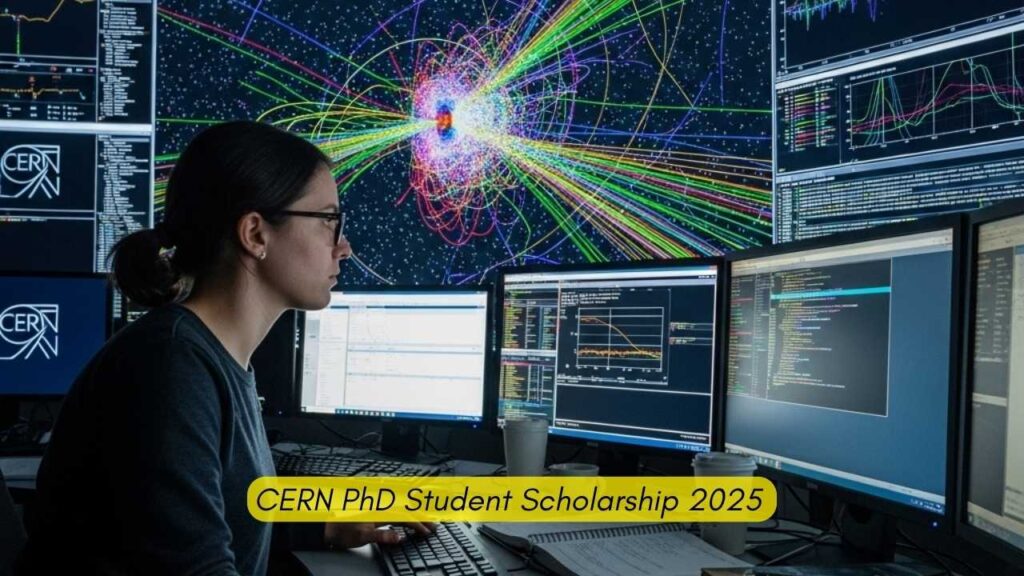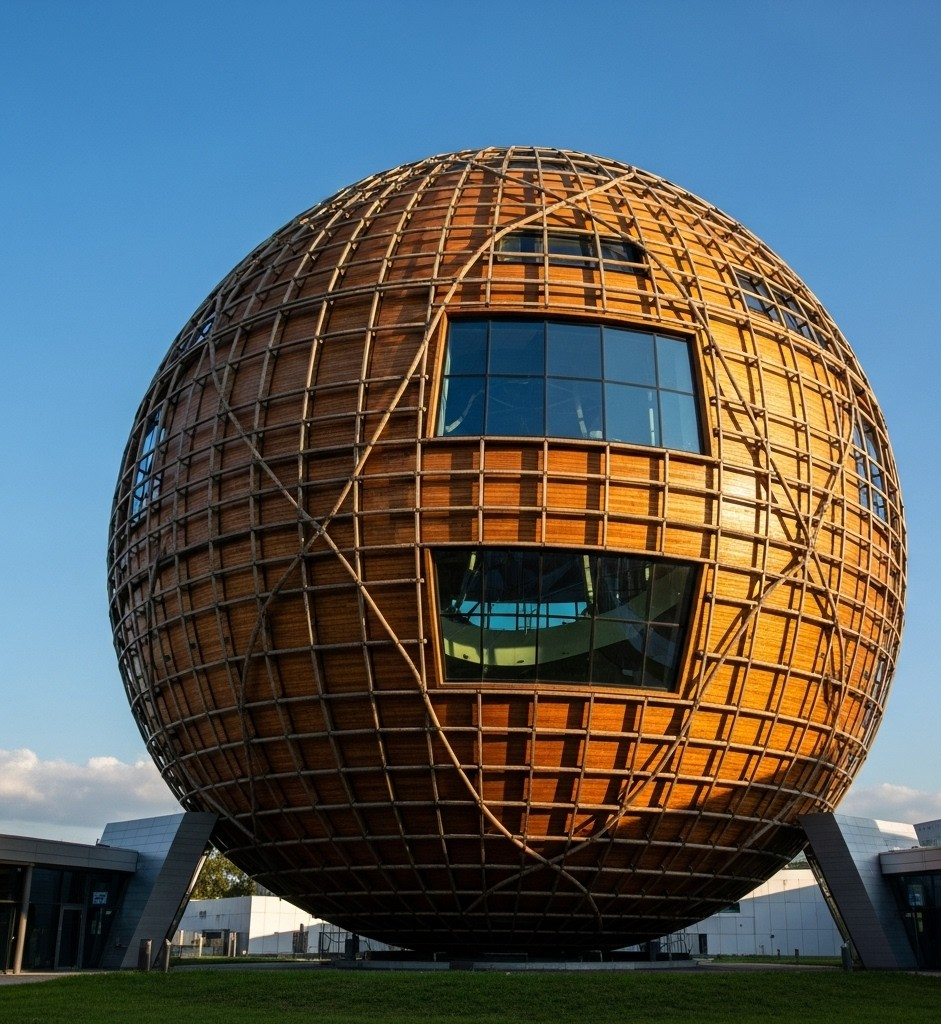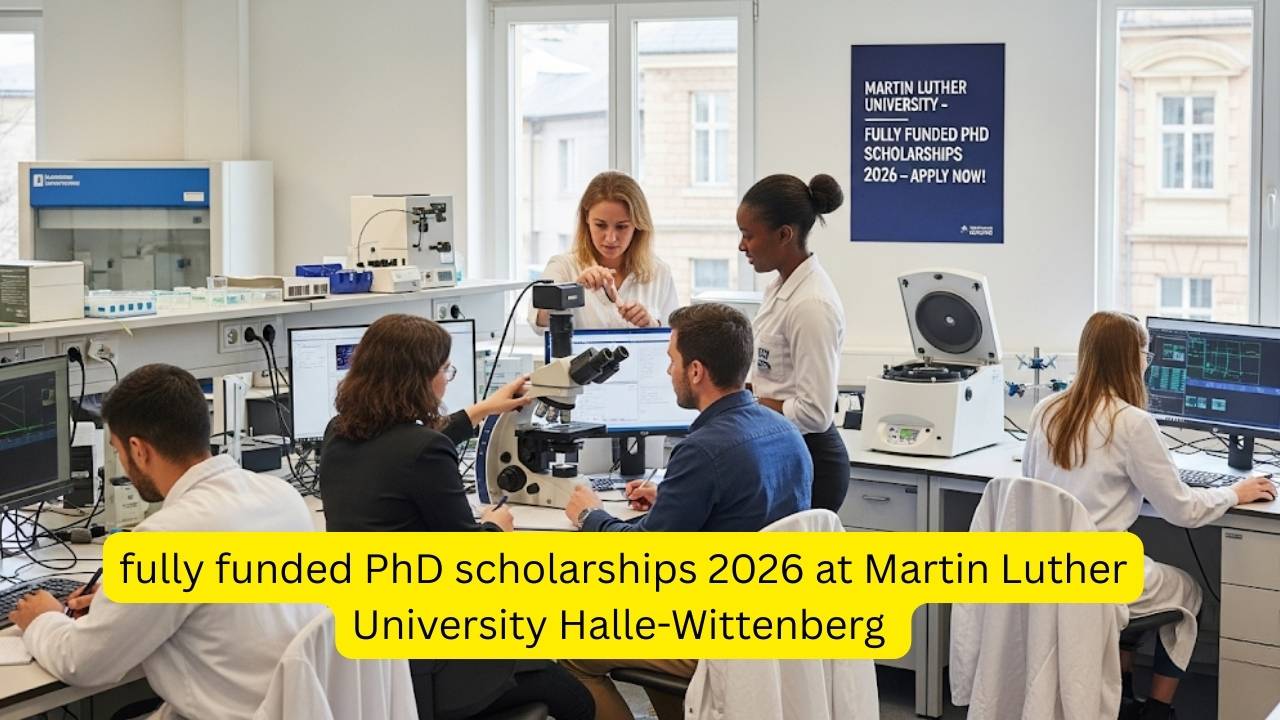The CERN PhD Student Scholarship 2025 represents one of the most prestigious opportunities for aspiring scientists and engineers worldwide. For many, the idea of contributing to the world’s largest particle physics laboratory is a lifelong dream, a chance to work at the very edge of human knowledge. But turning that dream into a reality can feel daunting. You might be wondering where to even begin, what the selectors are truly looking for, and how to craft an application that stands out.

This guide is designed to demystify the process. We’ll walk you through every step, from understanding the programme’s immense value to preparing each component of your application with confidence. Think of this as your roadmap to Geneva.
CERN PhD Student Scholarship 2025
| Key Fact | Detail |
| Programme Type | Fully funded research placement for doctoral students |
| Duration | 6 to 36 months CERN Careers |
| Monthly Stipend | Approximately 4,218 CHF (Swiss Francs) in 2024 CERN Doctoral Programme |
| Key Requirement | Must be a national of a CERN Member or Associate Member State |
Applying for the CERN PhD Student Scholarship 2025 is a marathon, not a sprint. It requires careful preparation, deep self-reflection, and a genuine passion for the frontiers of science and technology. But it is an achievable goal for dedicated students from all eligible backgrounds.
Use the prestige of this opportunity not as a source of pressure, but as a motivator to produce the most thoughtful and compelling application you can. Begin your research, start drafting your documents, and prepare to take part in one of humanity’s greatest scientific adventures.
What Exactly Is the CERN Doctoral Student Programme?
First, let’s clarify a common misconception. The CERN Doctoral Student Programme is not a standalone PhD-granting institution. Rather, it’s a placement programme. This means you must already be enrolled in, or about to start, a PhD programme at your home university.
You remain a student of your university while joining a research team at CERN for a period of up to three years. Your work at CERN will form the core of your doctoral thesis, which you will ultimately defend at your own university. This unique structure allows you to benefit from two worlds: the academic rigour of your university and the unparalleled experimental resources of CERN.
It’s an opportunity to work alongside Nobel laureates, leading engineers, and a global community of researchers on experiments that are literally redefining our understanding of the universe.

Beyond the Prestige: The Tangible Benefits of a CERN Scholarship
The allure of CERN is undeniable, but the practical benefits of the scholarship make it one of the most sought-after programmes globally. This is more than just an academic honour; it’s a comprehensive support system for your research and your life in Switzerland.
Here’s what you can expect:
- Generous Financial Support: The programme offers a substantial monthly living allowance, designed to comfortably cover the cost of living in the Geneva area. This allows you to focus entirely on your research without financial strain, a key feature of a truly fully funded PhD in Switzerland.
- Comprehensive Health Insurance: You’ll be covered by CERN’s comprehensive health insurance scheme, which provides excellent coverage in Switzerland and abroad.
- Travel and Family Allowances: The scholarship includes a travel allowance to help with the costs of relocating to Geneva. Depending on your personal situation, you may also be eligible for family, spouse, and child allowances.
- Unrivalled Research Environment: You gain access to state-of-the-art facilities and data from experiments like the Large Hadron Collider (LHC). You’ll be part of a dynamic, multicultural environment, collaborating with thousands of scientists from across the globe.
- Career Development: CERN provides extensive training opportunities, including language courses, technical workshops, and academic seminars. This experience is a significant launchpad for a career in academia, industry, or public policy.
Are You Eligible for the CERN PhD Student Scholarship 2025?
Before you invest time in your application, it’s crucial to confirm your eligibility. The criteria are strict, so review them carefully.
- Nationality: You must be a national of a CERN Member or Associate Member State. There are some exceptions for students from non-member states whose work is directly funded by their home country, but the primary route is through member state nationality.
- University Enrollment: You have started or are about to start a doctoral programme at a university. CERN requires that you remain a registered student throughout your time there.
- Field of Study: Your PhD topic must be in a field relevant to CERN’s work. While this obviously includes particle and applied physics, it also extends to a vast range of disciplines in engineering, computing, and data science. Many students work on cryogenics, electronics, material science, and advanced software development.
- Language Skills: You need a good working knowledge of either English or French. All work is conducted in these two languages.
Your Step-by-Step Guide to a Winning Application
Knowing you’re eligible is the first step. Now comes the challenge: crafting an application that captures the attention of the selection committee. I’ve seen many successful applicants focus on showcasing not just their academic excellence, but their specific passion for CERN’s work.
Here’s how to apply to CERN effectively.
Step 1: Lay the Groundwork – Find Your Focus
A generic application will not succeed. You need to connect your skills and research interests to a specific need or project at CERN.
- Explore CERN’s Activities: Spend time on the official CERN website and the websites of the main experiments (ATLAS, CMS, ALICE, LHCb). Understand the big questions they are trying to answer.
- Identify Potential Projects: Unlike some programmes, you don’t typically apply to a pre-defined project list. Instead, you propose what you want to work on. Your application is then circulated to potential supervisors looking for students with your profile.
- Highlight Your Skills: Your CV and motivation statement must clearly show how your skills—be it in programming languages like Python or C++, experience with data analysis frameworks like ROOT, or hands-on lab skills—are a perfect match for the challenges at CERN.
Step 2: Craft a CV That Shines
Your CV should be a concise, powerful summary of your academic and technical journey. Aim for a standard academic format, typically two pages.
- Emphasize Research: Detail any previous research projects, your role, the methods you used, and the outcomes.
- List Technical Skills: Create a dedicated section for your technical competencies. List programming languages, software, simulation tools, and any hardware experience.
- Include Publications and Presentations: If you have any publications (even if under review) or have presented at conferences, be sure to include them.
Step 3: Write a Compelling Motivation Statement
This is your chance to speak directly to the committee. It must be personal, specific, and passionate. A great statement usually addresses three key questions:
- Why CERN? What about CERN’s mission and work inspires you? Mention specific experiments or technological challenges that you find fascinating.
- Why You? What unique skills and experiences do you bring? Connect your past projects to the work you want to do at CERN. This is where you demonstrate that you’ve done your homework.
- What Are Your Goals? How will being at CERN help you achieve your long-term academic and career ambitions?
In my experience advising students, the most common hurdle is writing a letter that sounds too generic. Avoid clichés like “I have always been passionate about science.” Instead, show it: “My final year project on developing machine learning algorithms for signal detection in noisy datasets has prepared me for the challenge of sifting through LHC collision data.”

Step 4: Secure Powerful Letters of Recommendation
Your reference letters provide crucial third-party validation of your abilities.
- Choose Wisely: Ask professors or research supervisors who know you well and can speak to your research potential, work ethic, and technical skills.
- Ask Early: Give your referees at least 4-6 weeks of notice.
- Equip Them for Success: Provide them with your CV, your motivation statement, and information about the CERN doctoral student programme. The more context they have, the stronger and more specific their letter will be.
The Selection Process: What to Expect After You Click ‘Submit’
Once your application is complete, it is made available to hundreds of CERN supervisors. Selection committees typically meet twice a year, once in late spring and once in late autumn, to review candidates. If a supervisor is interested in your profile, they will likely contact you for an informal chat or a formal interview. Be patient, as the process can take a few months.
Your Ultimate Guide to the HISA Youth Fellowship 2025 at the University of Oxford
FAQs
Q1:What is the application deadline for the 2025 programme?
CERN’s Doctoral Student Programme does not have a single, universal deadline. Instead, applications are reviewed by selection committees twice a year. You should aim to submit your application well in advance of the committee meetings, which usually take place in May and November. Check the official CERN careers website for the most up-to-date information on committee dates.
Q2:Does the scholarship cover my university’s tuition fees?
No. The programme provides a research placement and a generous living stipend, but you remain enrolled at your home university. Your university’s policies on tuition fees for students on long-term placements will apply. Many universities waive fees for students on prestigious programmes like this, but you must check with your institution.
Q3:Is the scholarship only for students in theoretical physics?
Absolutely not. This is one of the biggest misconceptions. While there are many physics PhD opportunities, a large number of doctoral students at CERN work in applied physics, computer science, data analytics, and all fields of engineering (electrical, mechanical, materials). CERN is a massive technological enterprise, and it needs experts from a wide variety of STEM fields.
Q4:Can I apply if I am not a citizen of a CERN Member or Associate Member State?
Generally, you must be a national of a member or associate member state. However, some specific doctoral student positions may be open to nationals of other countries if they are funded through collaboration agreements with institutions in those countries. These are less common and will be advertised explicitly. Always check the nationality requirements first.










